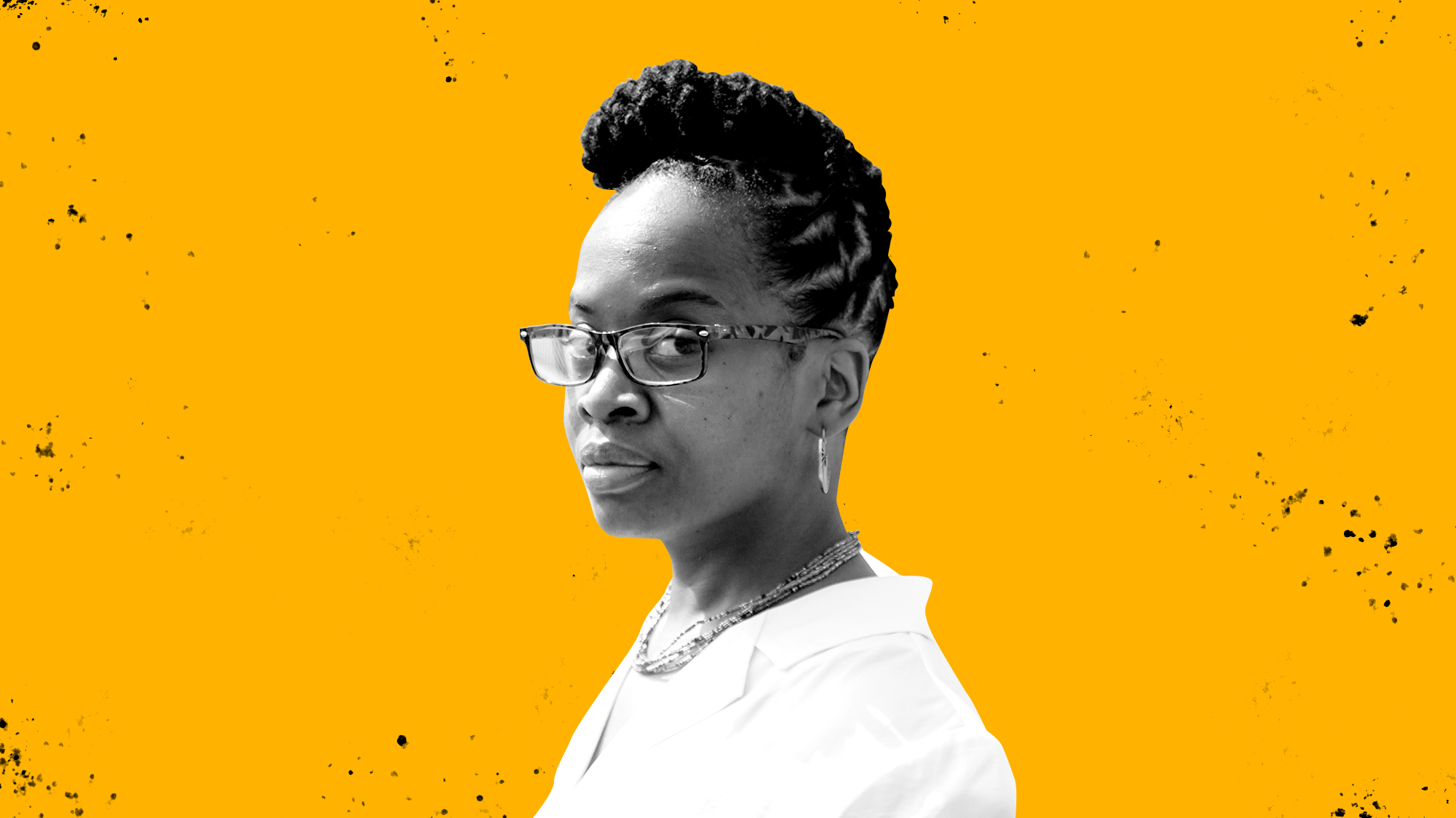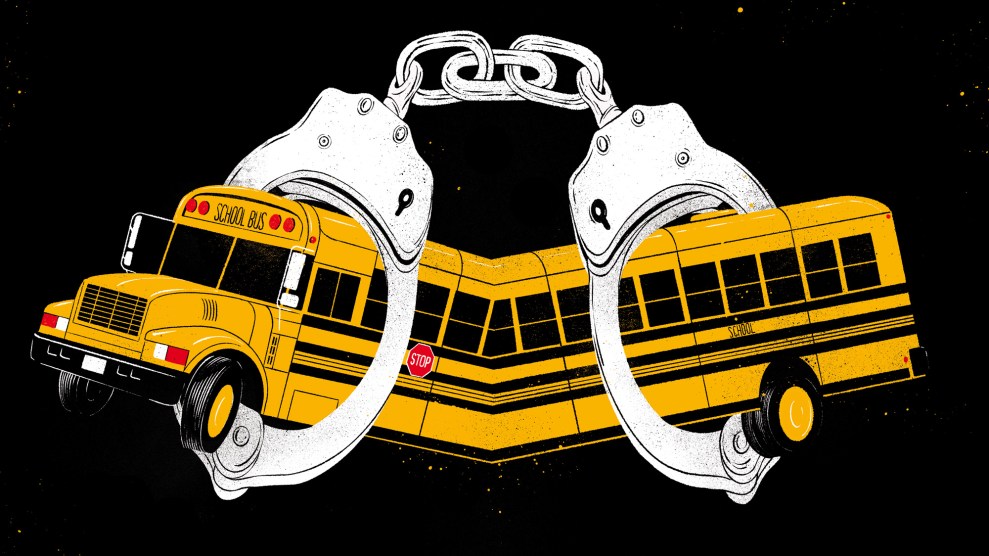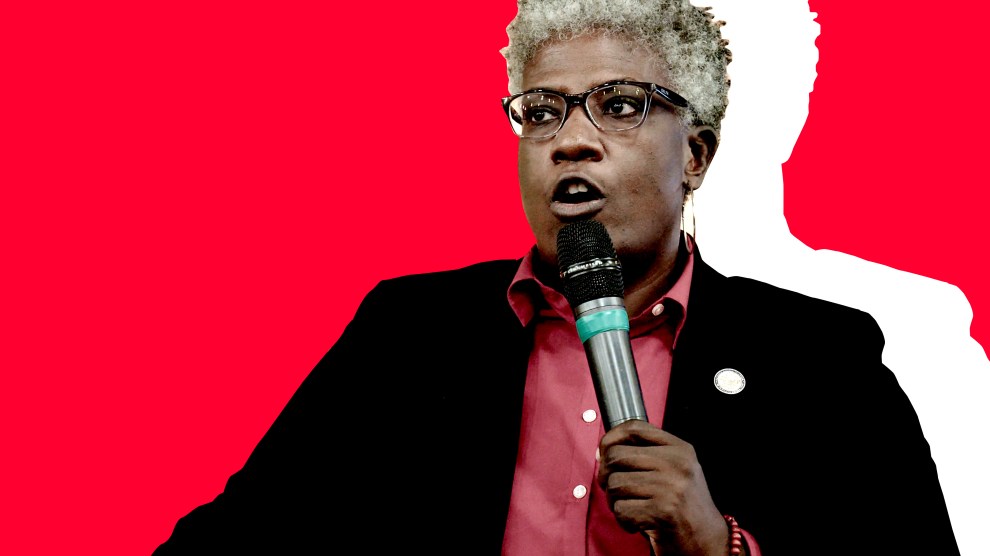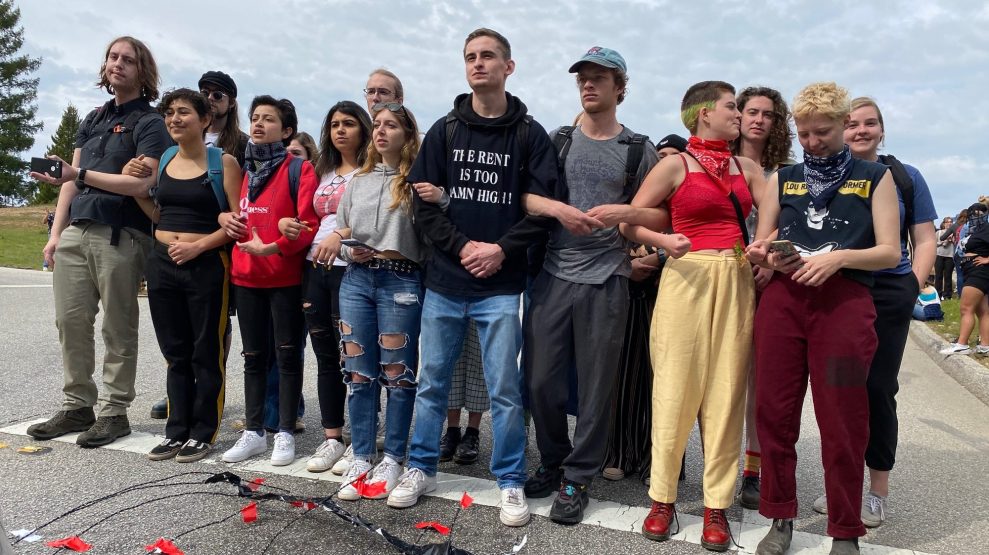As a girl, Carroll Fife never quite knew what her grandfather James did for a living, but she knew he was a somebody.
James was a factory worker, like most everybody else in Muskegon Heights, Michigan, but it was the way people gravitated toward him that suggested he was also something more. Once, when Fife was working at Sears as a teen, she saw him walk into the store. She saw how her colleagues, who didn’t know he was her grandfather, clamored around him: “Hey Mr. Fife… Do you need anything?… Wanna use my employee discount?” Same thing happened at the grocery store.
What Fife knew with certainty about her grandfather was that he believed in people having homes. He’d built houses for all of his children, and Fife remembers tagging along with him and her father as they put in insulation and subfloor and drywall. “This is what I wanna do,” Fife thought. “I want to build.”
“I guess ultimately I’ve done that,” the diminutive 44-year-old with shoulder-length locs and a penetrating stare tells me as we sit in a West Oakland park in August. “Just without a hammer and nails.”
In the fall of 2019, not far from where we meet, Fife organized the takeover of a vacant house for a group of homeless and housing-insecure mothers and their children. As one of the key architects of the movement that came to be known as Moms 4 Housing, Fife could clearly and emphatically explain the economic forces that were upending Black communities across the country; more importantly, she could put a human face and story to every number. “That’s what’s criminal about this housing crisis. There are actually places where people can live,” Fife told Democracy Now! as the occupation entered its eighth week in January. “This is starting a movement where people who are also experiencing housing insecurity… are waking up… and saying, ‘We deserve housing for all.’” In the middle of that live on-camera interview, Fife got word that sheriff’s deputies were executing a predawn raid on the house, forcibly evicting the moms.
Six months later, in July, Fife launched a campaign to represent West Oakland on the Oakland City Council. She’s again following in the footsteps of her grandfather, who she later learned was one of Muskegon Heights’ first Black city councilors. Yet her run is also quite radical. As a perpetual thorn in the side of moderate progressives on the council, Fife is very clear about one thing: She does not believe that institutions can be changed from the inside. “It’s like those people who go and say, ‘I’m going to go become a cop, and I’m going to change the culture,’” she scoffs. “Shut the fuck up. No, you’re not.”
On its face, Fife’s pitch to her would-be constituents seems contradictory. She does not believe in the system—but that is why, she argues, she is most equipped to transform it. It’s a pursuit in the radical tradition of the Black Panther Party, whose cultural and political legacy still shapes much of Oakland’s politics more than 50 years after its founding. Specifically, it’s the idea of self-determination—that Black people must rely on themselves and one another to build structures that truly serve them—that permeates much of Fife’s adult life and work.
Dig a bit deeper, though, and you’ll see Fife’s decision to run for office is simply the latest iteration of a dilemma that’s been at the heart of Black leadership since Reconstruction: Can a democratic system built specifically to exclude Black power be adapted to work in favor of it?
Fife, at least, is going to try. With local economies gutted and as many as 40 million people facing eviction, more Americans—in particular more Black Americans—will be living with the type of desperation that drove the moms in West Oakland. So Fife’s mission will be urgent, and it will be blunt: Extract the system’s resources and redistribute them. She wants to take $150 million from the police budget and spend it on community programs, violence prevention, and land trusts that could provide affordable housing.
“I want to create,” she tells me, “a real transparent process where I try to engage democracy.”

Fife grew up the middle of three children and attended an all-white Christian school. Her white friends always said that she was different, but could never articulate why.
“I’m so glad my dad let you come over,” she remembers a classmate saying. “He really hates niggers.” The racism, Fife recalls, “was never congruent.” When George H.W. Bush’s infamous Willie Horton ad aired in 1988, a white classmate asked Fife, “Are you related to him?”
Shortly after finishing high school, Fife had a child and moved to California—joining a friend on a three-day Amtrak ride, on something of a whim, heading toward Los Angeles. But Fife didn’t take to the city very well. She recalls meeting people who told her they worked in the “industry”—and she would naively ask, “Oh, plastics? Automotive?”
“It was so superficial,” she says now. “I was just searching for something bigger and deeper.”
She soon found it, settling in with a group of young Black organizers in Pasadena, just north of downtown. They lived cooperatively and congregated at a bookstore called Art & Soul, where they held study groups and read works by Afrocentric heavyweights. Importantly, the works were not concerned with integration, white racism or white people much at all; they focused on Black history before the transatlantic slave trade, and often argued in favor of Black racial superiority.
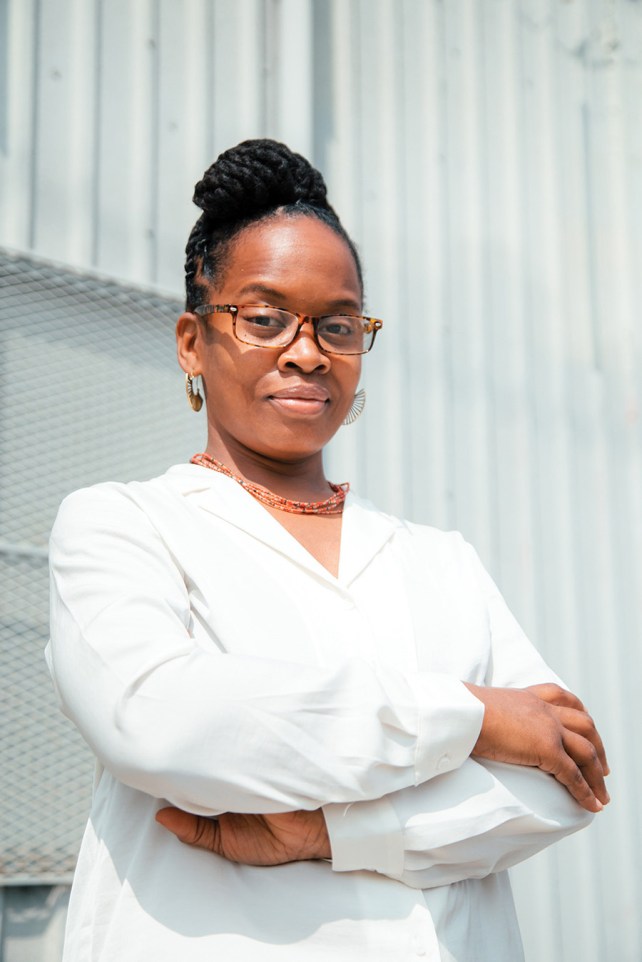
A few years later, in 1999, Fife and a few friends headed for Oakland, where she created a small school, Shule Vista Academy, that ran for four years. But the steadiest job she had was the one she did for free: community organizing. She showed up at City Hall so often that residents thought she worked there. She met her partner, had two more kids, earned a degree in psychology, and worked as a paralegal before joining the staff of the Alliance of Californians for Community Empowerment (ACCE), a community-based activist organization.
Since then, she has become something of an unassuming powerhouse. On that sunny Wednesday morning in mid-August, she walks toward me in DeFremery Park, an oversized black bag slung over her shoulder. Somewhere deep inside that bag is a device connected to a livestream feed of the California Assembly session, where lawmakers are debating a bill that could impact her work with ACCE. She takes off her mask and greets me with a warm smile. When I ask her about the hearing, she offers a dismissive wave of her hand. She wants to get down to business.
Nobody actually calls this park, a rolling green expanse nestled in the middle of the neighborhood, by it real name. It’s known to locals as “Lil Bobby Hutton Park,” after a 17-year-old who was among the first young people to join the Black Panther Party and became the first member to be killed in a confrontation with police in 1968. The space is just one of many holdovers from the Panther era in a city full of them.
The Black Panther Party for Self-Defense was founded by Huey P. Newton and Bobby Seale in Oakland in 1966. While Elaine Brown, who served as chair of the Black Panthers, lost her races for City Council in 1973 and 1975, and Seale lost his race for mayor in 1973, several longtime local officials owe their careers to the Panthers. Ron Dellums, a former mayor and longtime congressman, would likely not have won his elections without the Panthers. Rep. Barbara Lee, who represents Oakland in DC, volunteered with the group while attending Mills College on the city’s east side; she noted in a livestreamed conversation with me over the summer how instrumental that early activism was in shaping her political trajectory. Even Sen. Kamala Harris, the moderate Democrat who is vying to be VP and is arguably the antithesis of a Panther radical, was raised in Oakland by parents whose college study group alums went on to found Kwanzaa and Black Studies, and were reportedly instrumental in the formation of the Panthers.
“Our basic objective becomes this: politics is organizing and unifying the people around their basic desires and needs. … [T]hey want a change, and they want their basic desires and needs answered,” Seale told a reporter during his mayoral campaign. “I’m saying politics is organizing people around this, and teaching them through organization to control those institutions that control their very lives. If the police department, or any other agency of government that has been institutionalized, is not responsive to the needs of the people, then the people are going to have to learn how to control them.”
“That’s what we’re doing,” he concluded.
Seale’s remarks offer a direct line to Fife’s work today. Fife in fact serves as the secretary for the chair of the Black Panther Party Cubs, a grassroots activist group led by Fred Hampton, Jr., the son and namesake of the Chicago activist who was killed in a police raid in 1969. The new group is a far cry from being as culturally and politically influential as its predecessor; it’s a small, mostly political education–centered group. Its similarities, though, are crucial, according to Fife. “Self-determination programs are part of who we are, and what our purpose is, to make sure that our community has what it needs to thrive,” she tells me about the group. “Because if you don’t have basic necessities, say safety and survival necessities, then you can’t push for any type of revolutionary activity.”
Fife’s particular belief in radical transformation is likely to best land with younger progressives, but she argues it is also geared toward addressing older Black residents and those who came before her. “My case is that the conditions that [they] experienced years ago, that has led to the disinvestment in your West Oakland community, shouldn’t exist 50 years later,” she says. “We’re building a movement to ensure that we end those conditions now. ”

In her work at ACCE, Fife quickly identified housing as a central issue for Oakland’s Black community, which had shrunk 23 percent in the previous decade as housing prices in the city had skyrocketed. Like her grandfather, Fife has long considered housing a fundamental human right, but recognizes, as Princeton professor Keeanga-Yamahtta Taylor wrote in the New Yorker, “[t]here is an inherent conflict between the human right to housing and making housing available based on what the market will provide and at the highest price it can command.”
“The mismatch between housing need and costs has been a constant feature of the U.S. economy, with shortages driven by the basic reality that there is little to no money to be made in housing for working-class or poor people. The dynamic is especially acute for African-Americans,” Taylor wrote in the New Yorker in May. “The real-estate market has been lauded as a race-neutral space, guided only by supply and demand, but more than a century of racial discrimination and residential segregation, rooted in the government-inspired perceptions that African-Americans pose an existential threat to property values, belies that myth.”
Before the pandemic, there were an average of four vacant homes for every unhoused person in Oakland. Since the 2008 financial crisis, many homes have been scooped up at dirt cheap prices from families facing foreclosure by speculators that then flipped them for a sizable profit. An ad aimed at the tech workers fueling the Bay Area’s gentrification crisis dubbed West Oakland “the new edge of Silicon Valley.”
Fife launched the Black Housing Union at ACCE, where she heard firsthand stories from people who had jobs, cars, and families, but were living on the street because they couldn’t afford rent. Still, it hit home when last year one of her own staffers, a single mom named Dominique Walker, told her that she and her children had been evicted.
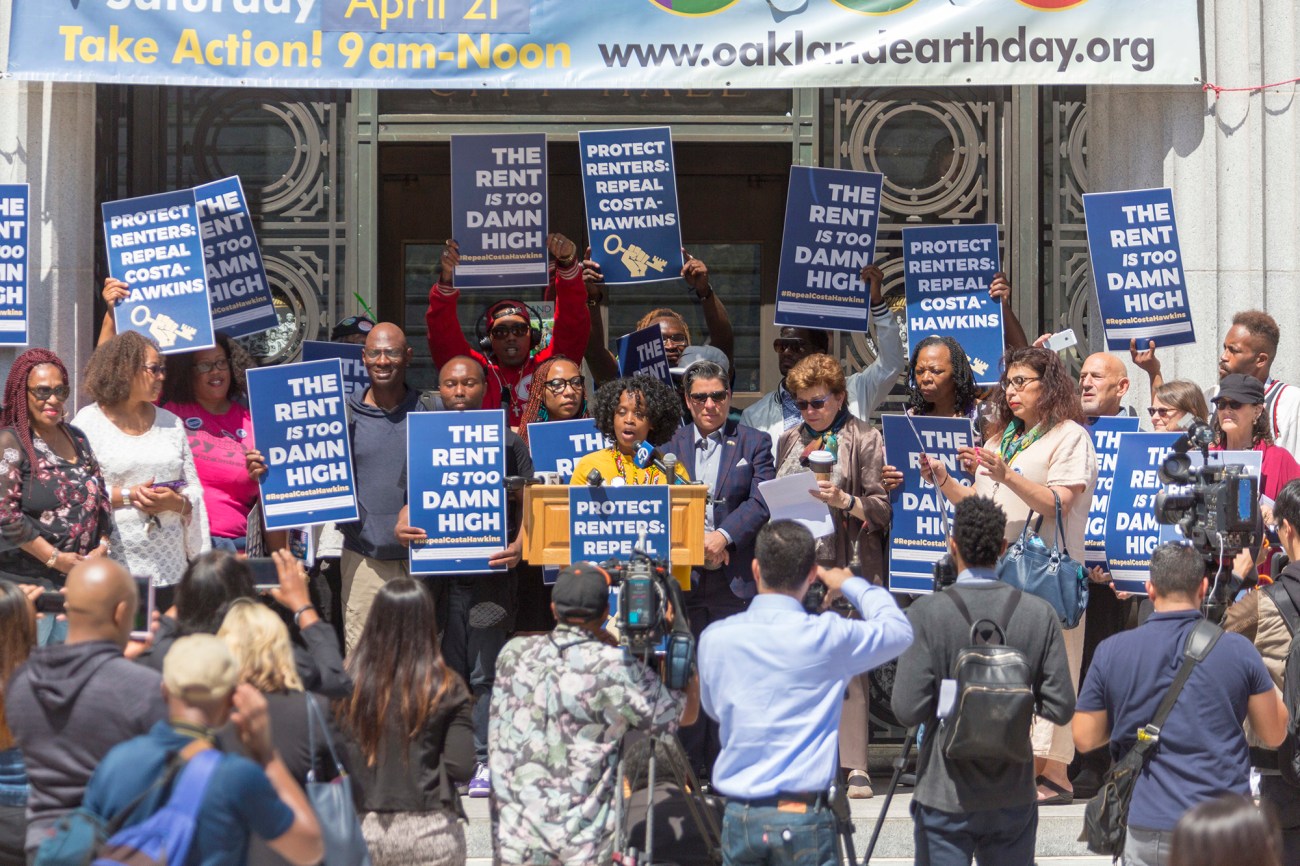
Carroll Fife addresses the media on April 23, 2018, in Oakland, California.
Eric Kayne/AP
“I was homeless with my children,” says Walker. “Another ACCE staffer was homeless, and there were moms coming to [Fife] from outside the community who were having trouble finding housing.” Walker notes that all of these women were fully employed, often with multiple jobs.
That’s when Fife, Walker, and a few other mothers turned to the empty house at 2928 Magnolia Street. Built in 1908, it cycled through generations of Oaklanders until 2019, when a subsidiary of the corporate real estate speculator Wedgewood snapped it up for half a million dollars. Zillow lists the house as being worth nearly $800,000, though it doesn’t look like it. The paint on the sky blue concrete stairs is chipped, its eggshell facade is graying, and weeds are poking up through broken concrete in the driveway.
It had mostly been vacant until last November, when it became “Moms’ House.” The occupation wasn’t a fly-by-night operation. Squatting is a time-tested organizing tactic, but what separated what Fife and Walker were doing was zeroing in specifically on homes that were owned by corporate speculators. In doing so, the group was taking direct action—and drawing a direct line between skyrocketing rents in the area and absentee corporate overlords who were steadily whitewashing the neighborhood. The tactic also reframed the common misconception of gentrification as an individually driven phenomenon. Yes, wealthy and whiter residents were moving in. But the welcome mats had been laid out years, if not decades before by lax government regulation that allowed companies like Wedgewood to swoop in in the first place.
As Walker told Mother Jones at the time, the occupation “was an answer to a desperate need. It should be illegal to have vacant houses and have people sleeping on the streets.” Over the next two months, while Wedgewood worked to evict them, at least three moms and four children lived in the house at all times. Fife visited every day, raised money, coordinated media coverage, and organized volunteers to protect and support the moms.
Then, that January morning, deputies in riot gear toting AR-15s broke down the front door with a battering ram and sent a robot into the residence to search for weapons while an armored vehicle sat out front. Two of the moms were arrested, but the district attorney declined to press charges. The publicity from the action helped some of the families find housing elsewhere in the city, though they, with help from Mayor Libby Schaaf and California Gov. Gavin Newsom, were able to push Wedgewood to sell the property to a community land trust that would rent it back to them. The trust is now in the process of renovating the house so the moms can eventually live in it.
Moms 4 Housing inspired copycats first in Los Angeles and Philadelphia, and later in San Francisco and Minneapolis. All the while, Fife kept working: She gave media tours of the homeless encampments dotting Oakland, spoke about housing as a human right before packed auditoriums at the University of California, Berkeley, and presented the moms’ story to the National Homelessness Law Center. Then the coronavirus hit. In April, Fife and a coalition of local Black-led groups released a proposal called the Black New Deal, which demanded immediate action to manage the spread of COVID-19 as it disproportionately sickened and killed Black people.
When the plan was shared with the Oakland City Council, Fife says that no one, including West Oakland’s Lynette Gibson McElhaney and the two other Black councilmembers, responded. Instead, the council created an Equity Caucus, leaving Fife and her peers feeling they’d been left out of the process entirely. (McElhaney disputes this version of events, telling me that the email got “buried” in the midst of the pandemic. She adds, “Our vision was to strengthen the network of responsive community groups, not to discredit their work, but to enhance their work.”)
Fife had initially laughed when people encouraged her to run for McElhaney’s seat. Yet the apparent snub from the council was the tipping point. “I’m doing it because this is some trash how our Black elected officials in particular, who are the status quo gatekeepers of white power, are engaging us,” she tells me. “They all ignored us.”
Fife considers herself an introvert, but in mid-July there she was, standing in the bed of a black pickup with a microphone in hand, making her case to West Oakland residents. Most of the city was still shut down, so instead of a conventional rally, her supporters organized a car caravan they called the People’s Procession, another nod to the spirit of the Panthers.
But in that legacy, Fife also recognizes the limits of Black political representation. If she’s elected, she won’t expect rapid institutional change. She believes she can break the mold in another way, to “enact policy that changes budgets so we can reroute funds to put them into places where they should be.”
When I ask what this might look like, Fife surprises me with a reference to an episode of Futurama in which a robot has a spiritual awakening and talks to God. “God was like, ‘When you do something right, people won’t know that you’ve done anything at all,’” Fife recounts, smiling. “I love that because it’s lifting up people’s voices and energies and power.”
It’s just one council race in one city, yet her run is indicative of our moment of upheaval and reckoning. Can people like Carroll Fife, who do not trust a system to fix its own problems, find a place within it?
